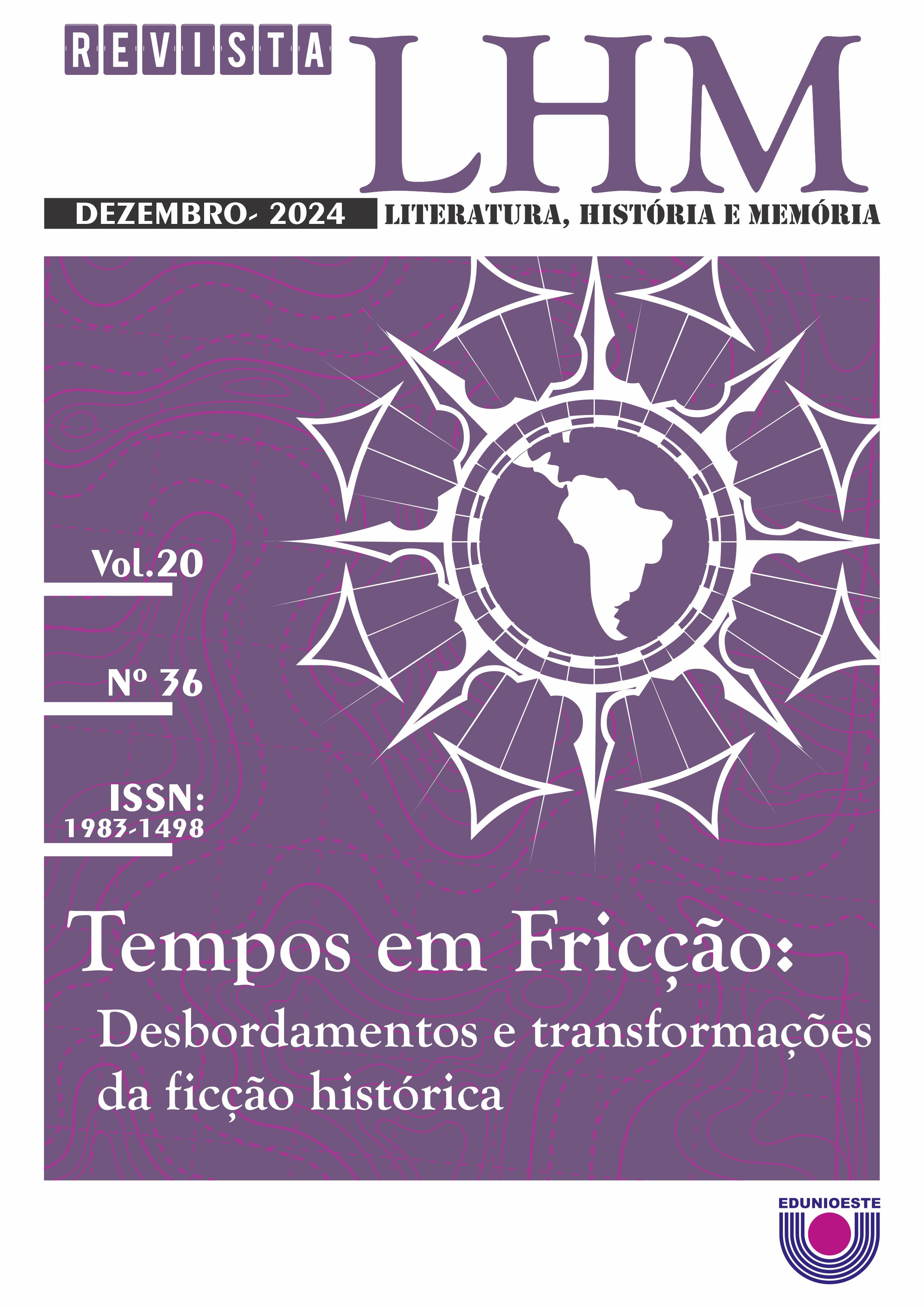Escrevendo com e contra o arquivo
a fabulação crítica em Beloved, de Toni Morrison, e The Invention of Wings, de Sue Monk Kidd
DOI:
https://doi.org/10.48075/rlhm.v20i36.33855Resumo
Este artigo visa discutir as possibilidades relacionais entre Literatura e História, principalmente no que diz respeito a uma reescrita da narrativa histórica com o auxílio da narrativa ficcional. Para tanto, este trabalho se aprofunda na teoria de Saidiya Hartman (2020; 2021) sobre o arquivo e a fabulação crítica. Segundo Hartman, muito pouco se registrou a respeito da população negra trazida do continente africano para o trabalho escravo no continente americano e, por isso, preencher as lacunas na história dessa população é um grande desafio (2020). Desse modo, a narrativa imaginada, aproximada, neste artigo, da Literatura, é utilizada como uma ferramenta capaz de recontar a história dessa população ao ajudar a imaginar o que poderia ter sido. Neste trabalho, serão analisados os romances Beloved (1988), de Toni Morrison, e The Invention of Wings (2014), de Sue Monk Kidd, obras que trazem como plano de fundo a escravidão nos Estados Unidos e mesclam fatos históricos a suas narrativas ficcionais. Com a análise dos romances, pretende-se mostrar como a narrativa literária pode ajudar a reconstruir e a reimaginar a História oficial. Outras perspectivas teóricas que auxiliarão nossa análise são a obra ensaística de Toni Morrison (2019) e os escritos de Hutcheon (1991), Scott (2011) e Figueiredo (2017) a respeito das aproximações entre Literatura e História.
Downloads
Publicado
Como Citar
Edição
Seção
Licença

Este trabalho está licenciado sob uma licença Creative Commons Attribution-NonCommercial-ShareAlike 4.0 International License.
Aviso de Direito Autoral Creative Commons
Política para Periódicos de Acesso Livre
Autores que publicam nesta revista concordam com os seguintes termos:
1. Autores mantém os direitos autorais e concedem à revista o direito de primeira publicação, com o trabalho simultaneamente licenciado sob a Licença Creative Commons Attribution que permite o compartilhamento do trabalho com reconhecimento da autoria e publicação inicial nesta revista.2. Autores têm autorização para assumir contratos adicionais separadamente, para distribuição não-exclusiva da versão do trabalho publicada nesta revista (ex.: publicar em repositório institucional ou como capítulo de livro), com reconhecimento de autoria e publicação inicial nesta revista.
3. Autores têm permissão e são estimulados a publicar e distribuir seu trabalho online (ex.: em repositórios institucionais ou na sua página pessoal) a qualquer ponto antes ou durante o processo editorial, já que isso pode gerar alterações produtivas, bem como aumentar o impacto e a citação do trabalho publicado (Veja O Efeito do Acesso Livre).
Licença Creative Commons
Esta obra está licenciada com uma Licença Creative Commons Atribuição-NãoComercial-CompartilhaIgual 4.0 Internacional, o que permite compartilhar, copiar, distribuir, exibir, reproduzir, a totalidade ou partes desde que não tenha objetivo comercial e sejam citados os autores e a fonte.


